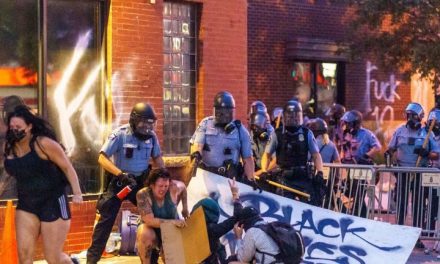I don’t know if there would be any blue states in America if the cities couldn’t vote, and that’s the basic theory that Republicans use to try to win states like Michigan and Wisconsin. Usually, they only have marginal success, but in the most recent Wisconsin election, they managed to hold an election in which only three percent of Milwaukee’s polling locations were open. I thought that, in combination with all the university students being sent home without time to change their address, would doom the Democrats on the ballot. But it didn’t turn out that way.
The Republicans are always looking for ways to help themselves, either through voting list purges, Voter ID laws, reduced polling stations, or other shenanigans. In this election, however, they had their own disadvantage to contend with. The state was holding a major election for a 10-year position on the Supreme Court and there were many other municipal and judicial elections, but the GOP did not have a competitive presidential primary while the Democrats did. As a result, it was easy to anticipate that Democrats would be more motivated to turn out to vote, and therefore the shenanigans took on more urgency.
I thought about this when I read that Barack Obama was in contact with Bernie Sanders repeatedly over the last month as he tried to negotiate an end to the primaries. If Sanders were to drop out before the voting in Wisconsin, much of the turnout advantage would go away. It would be far better for Sanders to stay in the race until after the polls closed, which is exactly what happened.
Perhaps that’s too cynical, but it would have made sense strictly from a political perspective. In any case, the Democrats started out with a big advantage but I though the Republicans had more than compensated for it by forcing an election in which the key Democratic constituencies were either massively inconvenienced through long lines and the public risk of gathering during a global pandemic, or outright disenfranchised because they weren’t even able to obtain an absentee ballot. It didn’t turn out that way.
To get a full appreciation of what happened, I recommend reading through the following Twitter thread from Ben Wikler, the chairman of the Democratic Party of Wisconsin.
THREAD: Democracy won in Wisconsin tonight. The GOP thought they had this election fully stolen. Trump leaned in personally. But voters, who don't like being suppressed, rose up. Organizers worked magic. Here's the story. (Also: donate! https://t.co/oRwfVzkXr3)
— Ben Wikler (@benwikler) April 14, 2020
It’s very hard to disentangle all of the strange and unique variables that played a role in Wisconsin’s election. One interpretation is that the Republicans were correct that they were going to lose because of the disparity in turnout, and nothing they attempted was sufficient to change the outcome. Another interpretation is that there was a massive backlash against their tactics, and they actually wound up doing substantially worse than they would have if they hadn’t tried so hard to cheat. A third interpretation is that Wisconsin is simply moving sharply against Trump and the GOP, and that we can see evidence of this from the election returns, which show more Republican erosion in the suburbs and a stronger than expected result for the Democrats in rural areas.
I think what people really want to know is if we can make any assumptions from the results about how the election will turn out in November. My guess is that the Democrats can take comfort for three reasons.
First, they clearly have a good organization which was evidenced by their ability to transition from a planned massive door-knocking campaign to a virtual campaign focused on getting people absentee ballots. Second, they did very well in both the swingy areas of the state and in rural areas, and while a lot of this is probably simply a function of having a competitive primary, perhaps that is not the full explanation. Lastly, the people of the state will remember that they were forced to put their lives on the line to vote even though the Democratic governor wanted to postpone the election. There will be lasting ill-feelings about this, so the GOP probably did significant damage to their prospects in November.
Additionally, it seems probable that winning an extra seat on the Supreme Court will prevent a massive voter purge that could have easily swung the election in Trump’s favor.
Given that the Democrats started out with an advantage, we should be careful about over interpreting the results, but I had given up these elections as lost and they wound up being successful and not even that close. On the whole, I think there is plenty of justification for any Republican who wants to panic.







